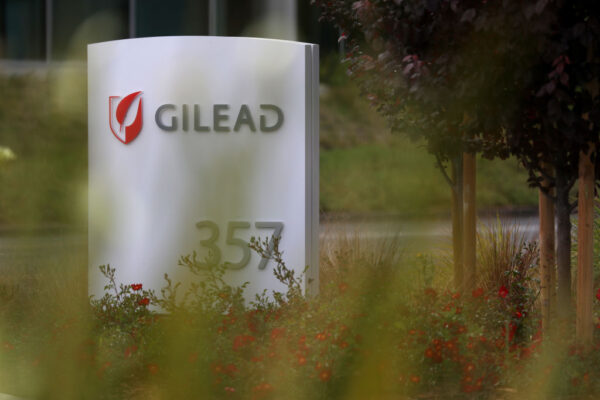
Gilead Sciences entered cell therapy with a multi-billion dollar acquisition that positioned it to compete with a Novartis treatment for blood cancers. Another deal now gives the drugmaker the opportunity to challenge Bristol Myers Squibb and Johnson & Johnson in multiple myeloma.
The deal this time is a collaboration. Gilead will share in the clinical development of a next-generation cell therapy from Arcellx. Foster City, California-based Gilead is paying its new partner $225 million up front along with a $100 million equity investment. If the Arcellx cell therapy, named CART-ddBCMA, reaches the market, Gilead’s Kite division and Arcellx will share in its commercialization.
For Gilead, the deal gives it a cell therapy candidate with potential advantages over rival products in the space. For Gaithersburg, Maryland-based Arcellx, the agreement brings validation to its novel approach to engineering a patient’s T cells into targeted cancer fighters and places its lead program in partnership with a company with experience manufacturing and commercializing cell therapies.
Arcellx investors welcomed the deal, as the biotech’s stock price closed Friday at $28.02, up nearly 30% from Thursday’s closing price. When Arcellx went public in February, it priced its shares at $15 apiece.
Like several new multiple myeloma therapies that have won regulatory approvals in recent years, Arcellx’s CART-ddBCMA is designed to target B-cell maturation antigen (BCMA), a protein abundant on the surface of multiple myeloma cells. Abecma, from BMS and 2SeventyBio, was awarded FDA approval last year, making it the first CAR T-treatment that addresses BCMA to treat multiple myeloma, a cancer of the plasma cells in bone marrow. J&J and Legend Biotech followed this year with FDA approval of the BCMA-targeting CAR T-therapy Carvykti.
One of the risks of revving up a patient’s immune cells is sparking a dangerous immune response in the body. Arcellx engineers its cell therapies with proprietary binding domains, synthetic proteins that are designed to bind to a specific target. The ability of CART-ddBCMA to use these domains to hit BCMA but not other targets is intended to reduce the risk of complications from off-target effects.
Arcellx has been developing CART-ddBCMA as a treatment for relapsed or refractory multiple myeloma. The announcement of the Gilead/Arcellx collaboration comes as the biotech now has additional Phase 1 data for CART-ddBCMA. On Friday, during the annual meeting of the American Society of Hematology, Arcellx reported continued durable responses in multiple myeloma patients who received its cell therapy. Of the 38 patients who could be evaluated at the Oct. 31 cutoff date, Arcellx reported that all of them showed a response to the cell therapy with 27 of them (71%) achieving a complete response or a stringent complete response.
Neurotoxicity is a known complication of CAR T therapy. Arcellx said no cases of grade 3 or greater neurotoxicity or parkinsonian-like events were reported in the tests of its cell therapy. The results informed the selection of the CART-ddBCMA dose to test in Phase 2, which has already been administered to that study’s first patient.
Gilead acquired Kite Pharma in 2017, paying $11.9 billion for the company, which had developed the CAR T-therapy Yescarta. Earlier that year, Novartis’s Kymriah became the first FDA-approved CAR T-therapy. In a note sent to investors Friday, William Blair analysts Raju Prasad and Sami Corwin wrote that Kite and Gilead had always made the most sense for a deal with Arcellx. Kite and Gilead had shelved their own BCMA program, but they had successfully launched Yescarta, which posts more than $1 billion annualized revenue since it received FDA approval as a second-line treatment for diffuse large B-cell lymphoma. Prasad and Corwin added that the complete responses of Arcellx’s drug at 12 months and 18 months “lines up very well” with Carvykti, the J&J multiple myeloma CAR T-therapy.
“Given the overall efficacy/safety profile of [CART] ddBCMA to date in a population with a very poor prognosis (with additional subgroup analysis presented by the company on its webcast showing consistent responses), we are inclined to say it is a potentially best-in-class program as well,” Prasad and Corwin wrote.
Under the terms of the alliance announced Friday, Kite and Arcellx will share equally in the costs of developing and commercializing CART-ddBCMA in the U.S. Outside of the U.S., Kite will shoulder 60% of those costs while Arcellx will be responsible for 40%. Profits of the co-commercialized products will be shared equally. For other products from the alliance that Kite commercializes in the U.S. and around the world, Arcellx will receive royalties.
Arcellx could earn up to $3.9 billion in clinical, regulatory, and commercial milestone payments, the company said in a regulatory filing. The deal also enables the two companies to collaborate on additional next-generation therapies using Arcellx’s technology. The Maryland company will receive an option to co-develop these programs and Kite receives an option on certain myeloma programs based on another Arcellx technology called ARC-SparX.
Photo: Justin Sullivan, Getty Images















